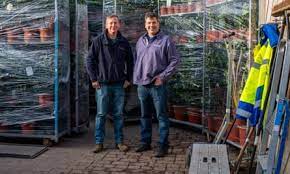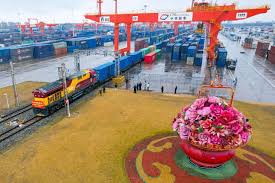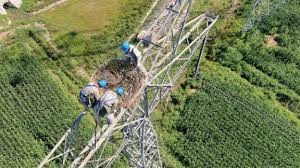‘It’s impossible to plan’: UK importers braced for storm at ports amid new Brexit checks

This week sees the introduction of new government policy on the control of EU produce entering the UK, with firms fearing delays, rising costs and the ability of border posts to cope
“Before Brexit, we could phone up on Monday and have the plants here by Wednesday – it was dead easy,” says Richard McKenna, managing director of Provender Nurseries, as he stands surrounded by trolleys holding hundreds of plants at its 8 hectare (20 acre) site in Swanley, Kent.
From its base in the garden of England, Provender is one of the country’s largest wholesale nurseries, selling up to 5,000 different lines of plants and trees to 11,000 businesses across the south-east. More than half are imported directly from countries in the EU. “We bring in product from across Europe – we have imported around €2.5m this year,” he says.
Post-Brexit requirements mean that Provender now has to secure phytosanitary certificates – health checks – before plants can be shipped, costing tens or hundreds of thousands of pounds each year and sometimes adding a week to delivery times.
McKenna is now bracing for more delays and costs. In April, many animal and plant products coming from mainland Europe will have to undergo physical checks at newly installed UK border posts. “With the changes, it is all a big unknown. The biggest unknowns are the cost of delay, the cost of damage – it’s just more added costs,” he says.
And McKenna is not alone in his concern. Importers of plants, meat and dairy products from mainland Europe are now readying themselves for the most significant change to how goods arrive in the UK since it left the single market three years ago.
This week the government will fire the starting gun on its new border policy. The catchily named border target operating model (BTOM) will look to mirror the controls the EU has for UK companies trying to export to mainland Europe.
From Wednesday, all imported plant and animal products will be categorised as low, medium or high risk. Those seen as medium and high, which includes meat and dairy products, as well as most plants, will now require checks from plant health inspectors or vets before they can be transported.
This comes before the more significant changes on 30 April, when these products will be physically checked at new border posts in the UK.
The government believes this will reduce the risk of importing harmful plant or animal diseases, while not significantly hindering trade, or heaping costs on to the consumer.
UK bosses are less confident. Instead of the smooth transition the government is hoping for, businesses that the Observer has spoken to paint a picture of widespread confusion, escalating costs for companies – an estimated £330m a year – and fears that the new border posts will not be able to cope.





